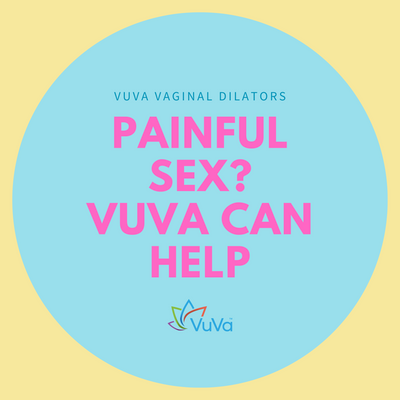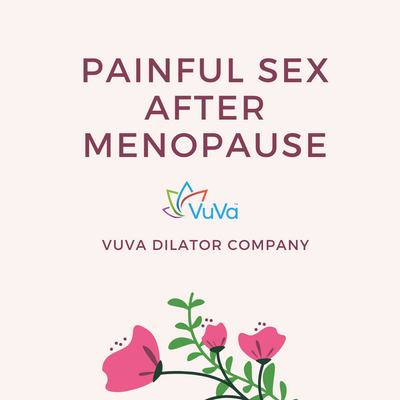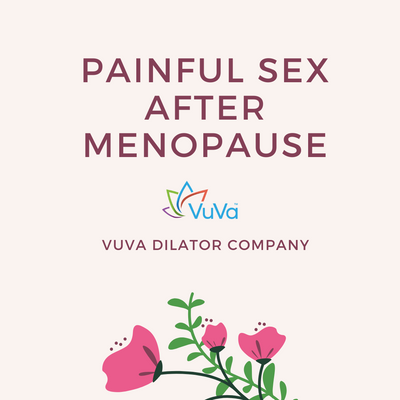
| Tara Langdale
Vaginismus Causes and Risk Factors: Understanding Why It Happens
Vaginismus is a condition that can feel both bewildering and isolating. If you or someone you care about is struggling with pain or difficulty during vaginal penetration—whether during sex, tampon use, or medical exams—you may be asking, “Why is this happening to me?” Understanding the causes and risk factors of vaginismus is a crucial step toward healing and self-compassion. In this article, we’ll explore the many reasons vaginismus can develop, the difference between primary and secondary vaginismus, and what you can do to move forward.
What Is Vaginismus?
Before diving into the causes, let’s briefly define vaginismus. Vaginismus is the involuntary tightening or spasm of the muscles around the vagina when penetration is attempted. This tightening is automatic and can make penetration painful, difficult, or even impossible. It can happen even if you desire sex or want to use tampons, and it does not mean you don’t want intimacy or pleasure.
Vaginismus is more common than many people realize, but it’s often misunderstood or not discussed openly. If you experience these symptoms, you are not alone—and help is available.
The Complex Nature of Vaginismus
One of the most important things to understand about vaginismus is that it’s rarely caused by a single factor. Instead, it’s usually the result of a combination of physical, emotional, psychological, and sometimes even cultural influences. The muscles around the vagina are part of a sensitive system that responds to stress, anxiety, trauma, and physical pain. When the body perceives a threat—real or imagined—it can react by tightening these muscles as a protective mechanism.
Let’s break down the main causes and risk factors for vaginismus.
1. Psychological and Emotional Causes
Anxiety and Fear
Anxiety is one of the most common contributors to vaginismus. This anxiety can be general (such as an anxiety disorder) or specifically related to sexual activity and penetration. Sometimes, even the anticipation of pain or discomfort is enough to trigger muscle spasms.
-
Fear of Pain: If you’ve experienced pain during sex or penetration in the past, your body may start to anticipate discomfort and involuntarily tighten up as a way to protect itself.
-
Performance Anxiety: Worrying about whether sex will be painful, whether you’ll be able to “perform,” or whether you’ll please your partner can create tension and stress.
-
Negative Beliefs About Sex: If you’ve grown up with messages that sex is shameful, dirty, or wrong, these beliefs can take root in your subconscious and affect your body’s response.
Past Trauma or Negative Experiences
A history of sexual trauma, abuse, or even an unpleasant gynecological exam can leave a lasting impact on your body and mind. For some people, vaginismus develops as a protective response to these experiences.
-
Sexual Abuse or Assault: Survivors of sexual trauma are at higher risk for vaginismus, as the body may react with muscle tightening to prevent further harm.
-
Painful First Experiences: If your first attempt at sex or tampon use was painful, your body may “remember” that pain and try to avoid it in the future.
-
Medical Trauma: Difficult childbirth, rough pelvic exams, or medical procedures involving the vagina can also trigger vaginismus.
Emotional and Relationship Factors
Emotional stress and relationship dynamics can play a significant role in vaginismus.
-
Relationship Stress: Tension, lack of trust, or unresolved conflicts with a partner can contribute to anxiety around sex.
-
Communication Issues: If you feel unable to communicate your needs or boundaries, you may experience more tension and discomfort.
-
Pressure to Have Sex: Feeling pressured—by a partner, by yourself, or by societal expectations—can increase anxiety and make symptoms worse.
2. Physical and Medical Causes
While vaginismus is often rooted in psychological or emotional factors, physical causes can also play a role—either as a trigger or as a contributing factor.
Painful Medical Conditions
-
Infections: Vaginal or urinary tract infections, yeast infections, or sexually transmitted infections (STIs) can cause pain during penetration, leading to fear and muscle tightening.
-
Menopause and Hormonal Changes: After menopause, lower estrogen levels can lead to vaginal dryness and thinning, making penetration uncomfortable or painful.
-
Childbirth Injuries: Tears, episiotomies, or other injuries from childbirth can result in pain and anxiety about penetration.
-
Gynecological Surgery or Radiation: Procedures involving the pelvic area can cause scarring, pain, or changes in sensation that contribute to vaginismus.
-
Other Conditions: Conditions such as endometriosis, vulvodynia, lichen sclerosus, or pelvic floor dysfunction can cause or worsen pain with penetration.
Primary vs. Secondary Vaginismus
-
Primary Vaginismus: This occurs when penetration has never been possible, often due to lifelong anxiety, fear, or muscle tightening. People with primary vaginismus may have struggled with tampon use, intercourse, or gynecological exams from their first attempt.
-
Secondary Vaginismus: This develops after a period of pain-free penetration. It often follows a specific event, such as trauma, surgery, childbirth, menopause, or the onset of a medical condition.
Understanding the difference can help you and your healthcare provider identify possible triggers and develop an effective treatment plan.
3. Cultural and Societal Factors
The way we think about sex is shaped by our upbringing, culture, and society. Sometimes, these influences can contribute to vaginismus.
Strict or Conservative Upbringing
-
Messages About Sex: If you were raised in an environment where sex was considered taboo, sinful, or shameful, you may have internalized negative beliefs that make relaxation during penetration difficult.
-
Lack of Sex Education: Inadequate or inaccurate sex education can leave people unprepared for what to expect, creating fear and anxiety.
Social Stigma and Silence
-
Taboo and Shame: Many people feel embarrassed or ashamed to talk about sexual pain. This silence can prevent them from seeking help and contribute to feelings of isolation.
-
Lack of Awareness: Because vaginismus is rarely discussed openly, people may not realize that their symptoms are common and treatable.
4. Risk Factors for Vaginismus
While anyone with a vagina can develop vaginismus, certain factors can increase the risk:
-
History of Sexual Abuse or Trauma: Survivors are at higher risk, though not everyone with vaginismus has this history.
-
Anxiety Disorders or High Stress: Generalized anxiety, panic disorders, or high levels of daily stress can make the body more prone to muscle tension.
-
Negative or Limited Sex Education: Not knowing what to expect from sex or believing myths about sex can increase fear.
-
Painful First Sexual Experiences: Early experiences that are painful or traumatic can set the stage for vaginismus later on.
-
Difficult Childbirth or Medical Procedures: Injuries, scarring, or negative experiences during childbirth, surgery, or exams can trigger symptoms.
-
Relationship or Communication Issues: Difficulty communicating with a partner or feeling unsupported can make symptoms worse.
-
Cultural or Religious Beliefs: Strict beliefs about sex can increase shame and fear around penetration.
5. When No Cause Is Found
Sometimes, despite thorough evaluation, no clear cause for vaginismus can be identified. This can be frustrating, but it’s important to remember that your experience is real and valid. The absence of a single, identifiable cause does not mean the condition isn’t treatable. Many people with “idiopathic” (unexplained) vaginismus still benefit from therapy, physical exercises, and support.
6. How Vaginismus Develops and Persists
Understanding the cycle of vaginismus can help you break it. Here’s how it often works:
-
Anticipation: You anticipate penetration will be painful or difficult.
-
Anxiety: This anticipation creates anxiety or fear.
-
Muscle Tightening: The body responds by tightening the vaginal muscles.
-
Pain or Difficulty: Penetration is painful or impossible, confirming your fears.
-
Avoidance: You may avoid sex, tampons, or exams, which can increase anxiety and reinforce the cycle.
Breaking this cycle often requires addressing both the physical and emotional components through treatment and support.
7. The Importance of Compassion and Support
If you’re struggling with vaginismus, it’s normal to feel frustrated, ashamed, or even angry. Be gentle with yourself—vaginismus is not your fault. It’s a medical condition, not a reflection of your worth, desirability, or strength.
-
You Are Not Alone: Many people experience vaginismus, even though it’s rarely talked about.
-
Help Is Available: With the right support, most people see significant improvement or complete resolution of symptoms.
-
Open Conversations Matter: Talking with your partner, friends, or a healthcare provider can help reduce shame and isolation.
8. Moving Forward: What You Can Do
If you suspect you have vaginismus, here are some steps you can take:
1. Seek Professional Help
-
Talk to Your Healthcare Provider: They can rule out physical causes and refer you to specialists.
-
Find a Sex Therapist or Counselor: Therapy can help address anxiety, trauma, and relationship issues.
-
Consider Pelvic Floor Physical Therapy: Specialists can teach you how to relax and control your pelvic muscles.
2. Educate Yourself
-
Learn About Anatomy and Sexual Response: Understanding how your body works can help reduce fear.
-
Read Reputable Resources: Look for information from trusted medical organizations and sexual health experts.
3. Communicate with Your Partner
-
Share Your Experience: Let your partner know what you’re feeling and how they can support you.
-
Explore Non-Penetrative Intimacy: There are many ways to experience pleasure and connection without penetration.
4. Practice Self-Compassion
-
Be Patient: Healing takes time, and progress may be gradual.
-
Celebrate Small Wins: Every step forward is a victory.
-
Avoid Self-Blame: Remember, vaginismus is not your fault.
9. Frequently Asked Questions About Vaginismus Causes
Can vaginismus develop suddenly?
Yes, secondary vaginismus can develop suddenly after a specific event, such as trauma, childbirth, or the onset of a medical condition.
Is vaginismus always caused by trauma?
No. While trauma is a risk factor, many people with vaginismus have never experienced sexual trauma. Anxiety, negative beliefs, or physical pain are also common causes.
Can medical conditions cause vaginismus?
Yes. Infections, menopause, pelvic injuries, and other medical issues can trigger or worsen symptoms.
If I don’t know the cause, can I still get better?
Absolutely. Many people with unexplained vaginismus improve with therapy, education, and support.
Conclusion
Vaginismus is a complex condition with many possible causes and risk factors. Whether it stems from anxiety, trauma, medical issues, cultural beliefs, or a combination of factors, it’s important to remember that you are not alone and that help is available. Understanding why vaginismus happens is the first step toward healing. By seeking support, educating yourself, and practicing self-compassion, you can break the cycle and move toward a life free from pain and fear.
If you’re ready to take the next step, reach out to a healthcare provider or sexual health specialist today. With the right care, recovery is possible—and you deserve it.
VuVa Magnetic Dilators are specially designed devices that can assist people managing vaginismus by providing gentle, progressive stretching of the vaginal muscles in a safe and controlled way. What sets VuVa dilators apart is their embedded medical-grade magnets, which are intended to promote increased blood flow and help relax the pelvic floor muscles during use. By combining gradual dilation with the potential therapeutic benefits of magnetic fields, VuVa Dilators may help reduce discomfort, decrease muscle tension, and support the body’s natural healing processes. Used regularly as part of a treatment plan—often alongside guidance from a healthcare professional—VuVa Magnetic Dilators can empower individuals to regain comfort and confidence with vaginal penetration.













